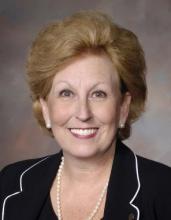Will you get paid for the care you provide to patients who have gained insurance coverage through the Affordable Care Act’s health insurance claims? You’ll soon find out.
Under the health reform law, patients must pay their first month’s premium to be considered enrolled; they then have 90 days to pay the next premium.
If the patient doesn’t pay his or her premiums for the second month, the insurer can hold or "pend" all claims. By the third month, if the patient still has not paid, the insurer can terminate his or her policy. The physician is left to collect whatever is owed for all outstanding claims from the patient.
The Centers for Medicare and Medicaid Services (CMS) clarified the grace period policy in a letter to insurers last year.
The first ripples could come in April. Patients who started and paid for coverage in January, but who did not pay in February or March, might get dropped from coverage. That could leave physicians scrambling to cover the unreimbursed care.
Physicians’ organizations including the American Medical Association, the American College of Physicians, and the American Academy of Family Physicians have been working to reverse this provision of the Affordable Care Act, to no avail so far.
In a March 5 letter to the CMS, dozens of organizations and state medical societies urged the agency to require insurers to tell physicians whether patients had up-to-date coverage during the verification of eligibility. As the law and current regulations are written, insurers can notify physicians on their own timeline whether a patient’s coverage has lapsed.
The organizations also asked the CMS to "require issuers to assume full financial responsibility if an issuer provides inaccurate eligibility information during the last 60 days of the grace period."
"Managing risk is typically a role for insurers, but the grace period rule transfers two-thirds of that risk from the insurers to physicians and health care providers," Dr. Ardis Dee Hoven, president of the American Medical Association, said in a statement.
She added that the AMA is now offering some resources to help physicians manage the "potential negative impact" from having unwittingly given uncompensated care.
Among the resources is a sample letter for patients that explains the 90-day grace period and the importance of paying premiums on a timely basis and in full. The AMA also provides a step-by-step outline suggesting how to collect from patients whose coverage has lapsed.
It is unclear how many individuals have paid for coverage under the Affordable Care Act. The Health and Human Services department said on March 17 that 5 million Americans have signed up for coverage through the state and federal exchanges since Oct. 1. But the department continues to say that it does not know how many have paid their premiums.
On Twitter @aliciaault

